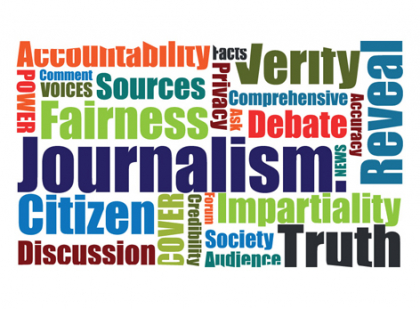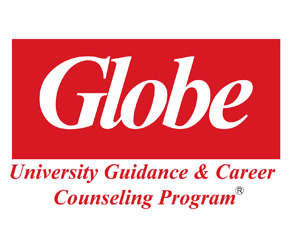Journalism Major AUL – Kaslik (104 credits)
Journalists and Other Writers research and compile news stories, write and edit news reports, commentaries and feature stories for presentation in print and electronic media, and compose written material to advertise goods and services.
Journalistic media includes: print, television, radio and internet.
In some nations the media is controlled by the government, in others the news media is independent. Access to freely available information gathered by independent journalistic enterprises can enable citizens to effectively participate in the political process.
The role and status of journalism has undergone changes over the last two decades with the publication of news on the internet, people are increasingly consuming news through, smartphones and other electronic devices, challenging news organizations to fully monetize their digital wing.
The digital era has also ushered in a new kind of journalism in which ordinary citizens play a greater role in the process of news making, with the rise of citizen journalism being possible through the internet. Using camera equipped smartphones, active citizens are now enabled to record footage of news events and upload them onto channels.
Forms
There are several different forms of journalism, all with diverse audiences. Journalism is said to serve the role of a fourth estate, acting as a watchdog on the workings of the government.
Some forms include:
• Advocacy journalism: writing to advocate particular viewpoints or influence the opinions of the audience.
• Broadcast journalism: written or spoken journalism for radio or television.
• Citizen journalism: participatory journalism.
• Data journalism: the practice of finding stories in numbers and using numbers to tell stories.
• Drone journalism: use of drones to capture journalistic footage.
• Interactive journalism: online journalism that is presented on the web.
• Investigative journalism: in-depth reporting that uncovers social problems.
• Tabloid journalism: writing that is and entertaining.
• Yellow journalism: writing which emphasizes exaggerated claims or rumors.

Professional and ethical standards
Various existing codes share common elements including the principles of truthfulness, accuracy, objectivity, impartiality, fairness and public accountability.
Some journalistic codes of ethics include concern with discriminatory references in news based on race, religion, sexual orientation and physical and mental disabilities.
Because of the pressure on journalists to report news promptly and before their competitors, factual errors occur more frequently than in writing produced and edited under less time pressure.

Tasks
This occupation may include associated occupations with varying tasks.
• determining advertising approach by consulting clients and management, and studying products to establish principal selling features
• writing advertisements for press, radio, television, cinema screens, billboards, catalogues and shop displays
• making decisions about the specific content of publications in conjunction with other senior editors
• reviewing copy for publication to ensure conformity with accepted rules of grammar, style and format, coherence of story, and accuracy, legality and probity of content
• collecting and analyzing facts about newsworthy events from interviews, printed matter, investigations and observations
• writing news reports, commentaries, articles and feature stories for newspapers, magazines, journals, television and radio on topics of public interest
• critically discussing daily news topics in the editorial columns of newspapers and reviewing books, films and plays.

Job Titles
• Copywriter
• Newspaper or Periodical Editor
• Print Journalist
• Radio Journalist
• Technical Writer
• Television Journalist
• Journalists and Other Writers

7 Things You Should Know Before Majoring in Journalism
1. Once you start college, your résumé is now your life. Start looking for internships freshman year. Your internship at the local newsletter can get you an internship at the local newspaper, which can get you an internship at a bigger name.
2. Networking is everything. In journalism, who you know is essential. You could be an OK reporter, but because you know someone who knows someone, you might just land a great position. So start knowing people: Get to know your professors, since they’ve probably worked at publications that could give you an internship or job.
3. Being good at networking is really hard. It’s not enough to shake someone’s hand and chat for two minutes. You need to make yourself memorable! Follow-up emails are key if you don’t hear back, don’t be nervous to reach out more than once. Make sure your emails are unique to every person.
4. Being a good writer isn’t enough. That’s why you’ll see such a variety of courses on your curriculum. To get hired, you need to understand all aspects of what makes a good story: photos, videos, graphics, and more. It’s great to have a concentration in writing, but don’t let that be the only thing you’re good at.
5. Don’t let anyone make you feel like you’re not talented. No two people have the exact same writing style. This is bound to make you clash with a professor at some point, just remember that they’ve been in this business for way longer than you have and they know what works. Take their advice and figure out how to work their suggestions in while still keeping your unique voice.
6. Social media is your new BFF. If you tweet as much as you text your best friend and get a secret thrill every time someone likes your Instagram pic, you’ve chosen the right field. Publications have entire social media teams, so knowing what makes people hit “like” will automatically make you more hire-able. Just remember to keep it professional.
7. Don’t be shy. Journalism requires you to talk to strangers. From interviewing people on the streets to pitching ideas to editors, you have to be persistent!






















